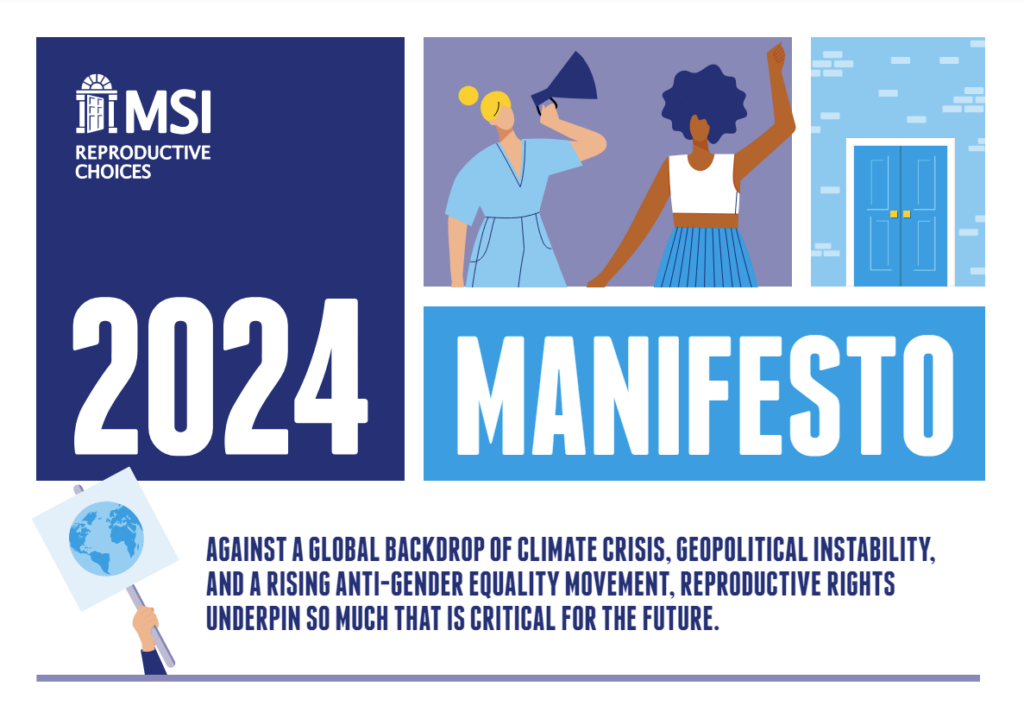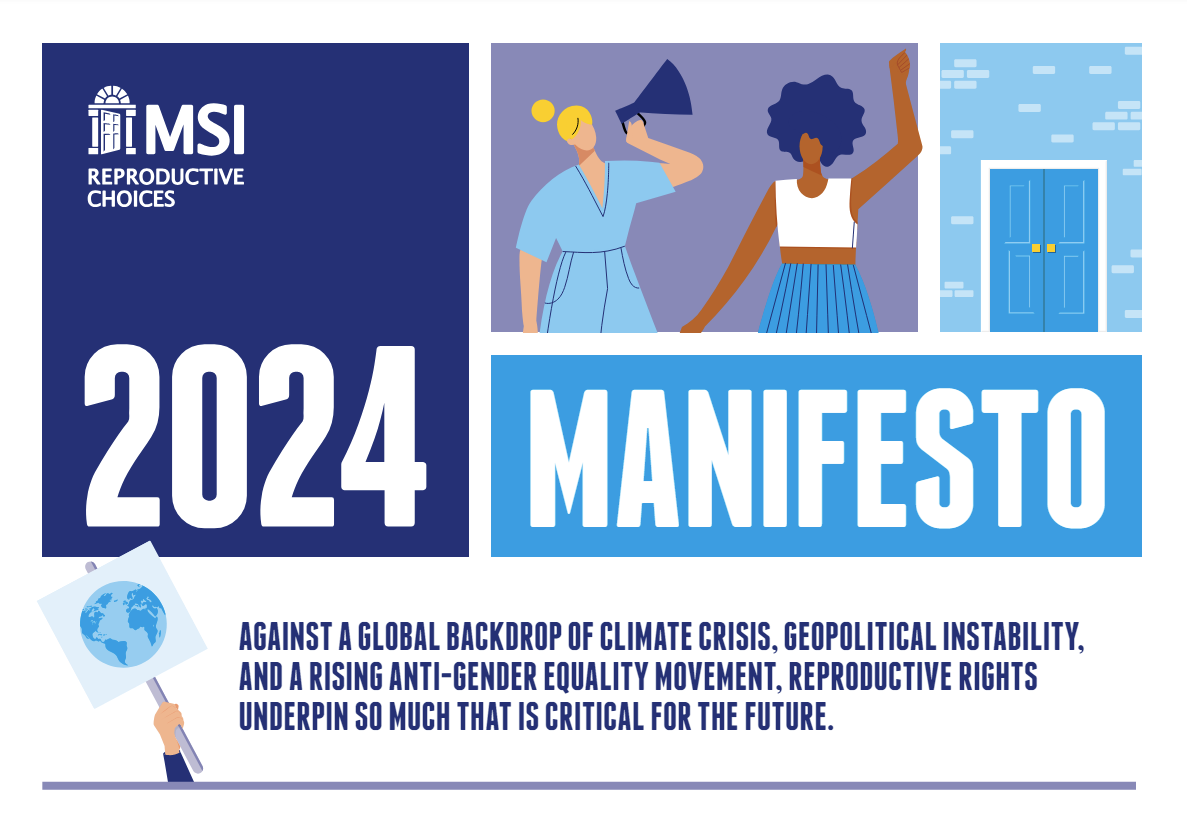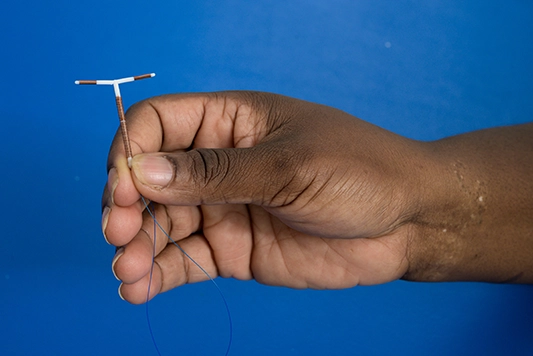There is a general election on 4 July 2024. As people across the country decide how to vote, we explore what good policymaking would look like in the areas of sexual and reproductive healthcare, abortion, and criminal justice, rising anti-choice extremism and gender equality.
Read our manifesto here: MSI Reproductive Choices 2024 Manifesto

Abortion and criminal justice – policy reforms for the next Parliament
Abortion is still criminalised in Britain. (In Northern Ireland, it was decriminalised in 2019, following a vote in Westminster.) The Abortion Act 1967 makes abortion legal if certain criteria are met, but under the Offences Against the Persons Act 1861 and the Infant Life Preservation Act 1929, abortion outside these parameters remains a criminal offence. The maximum sentence is life in prison.
That means for an abortion to be legal, certain criteria must be met, such as getting two doctors to sign off every abortion and confirm that there is an acceptable medical reason. The most common reason given is that continuing the pregnancy would be harmful to the life, health, or wellbeing of the person who is pregnant. Most unwanted pregnancies meet these criteria so in reality, most people who need or choose an abortion and seek one out through legal, regulated providers will be able to have one within the law.
But what about the small minority who find themselves on the wrong side of the law? We hear stories from people we treat every week who could have easily ended up having an abortion outside of the parameters of the law, but thankfully, they were able to get care with us. There are women whose partners prevent them attending a regulated clinic because they know our trained safeguarding professionals are good at spotting signs of abuse. There are women considering whether to buy pills online, not realising the law requires two doctors to give approval before they can legally make this decision. There are young women, even girls, who do not realise they are pregnant for several weeks as they don’t know the signs or don’t know who to ask for help. Whatever you feel about abortion in general, none of these women are a threat to the public, and they do not deserve to be threatened with prison.
Reforming the law
When we stop to consider what abortion care would look like in an ideal world, our first step must be to listen to those who need or choose abortion. Time and time again, we hear that having to explain the reasons for having an abortion feels invasive, patronising, and stigmatising.
The legal requirement for two doctor sign-off isn’t only an issue for those accessing abortion care. The healthcare system as a whole is under pressure and the reproductive health sector is no exception. There are shortages of trained medical professionals and the small number of specialist doctors trained to offer complex care are mostly nearing retirement age. It makes no sense that doctors are spending time completing clinically unnecessary forms to approve deeply personal reproductive planning decisions.
What does good abortion law look like?
Professor Sally Sheldon has written at length about the issues with abortion law across the UK and has set out an expert vision for how to resolve them. This vision forms a blueprint for reform along with real-world examples like Canada, New Zealand, and Australia where abortion has been decriminalised with great success.
Decriminalisation has never led to a rise in the abortion rate or an increase in abortion taking place at a later point in the pregnancy. There is no evidence that it negatively changes the way people access abortion care or the standards of care. On the contrary, removing abortion from criminal law means that services are designed based on clinical best practice (and, of course, what women want) rather than outdated, Victorian laws passed before women even had the vote.
Policy reforms on abortion law and criminal justice
The most important goal of any abortion law reform is to protect the people ending their own pregnancies. There are increasing numbers of women facing police investigations, with one jailed (later released on appeal with a suspended sentence) after being suspected of ending their pregnancies outside the law. In some cases, charges have been dropped, but not before their lives and families have been turned upside down by violating police investigations into the most intimate details of their lives.
Ultimately, abortion should be completely removed from criminal law and regulated in line with other comparable forms of healthcare, in a model similar to Canada, New Zealand, or Australia. These reforms need to make sure the hard-won gains that hang upon the Abortion Act 1967, such as telemedicine, are protected. Legal reforms should be developed in consultation with abortion providers, the relevant Royal Colleges, and leading law and policy experts in the field.
Abortion is healthcare, and healthcare is a human right.
To read our full policy recommendations on abortion and criminal justice, read our manifesto here.
Read more about our post-election policy vision
Visit the pages below to read more about our 2024 manifesto and the main policy changes we will advocate for during the next Parliament.

2024 Manifesto
Read and download our 2024 Manifesto: our post-election policy vision.

Weaponization of choice
Read our blog on rising extremism and the weaponization of women’s choices.

Policy reforms for SRH
Read our blog on positive policy reforms for sexual and reproductive healthcare in England.






